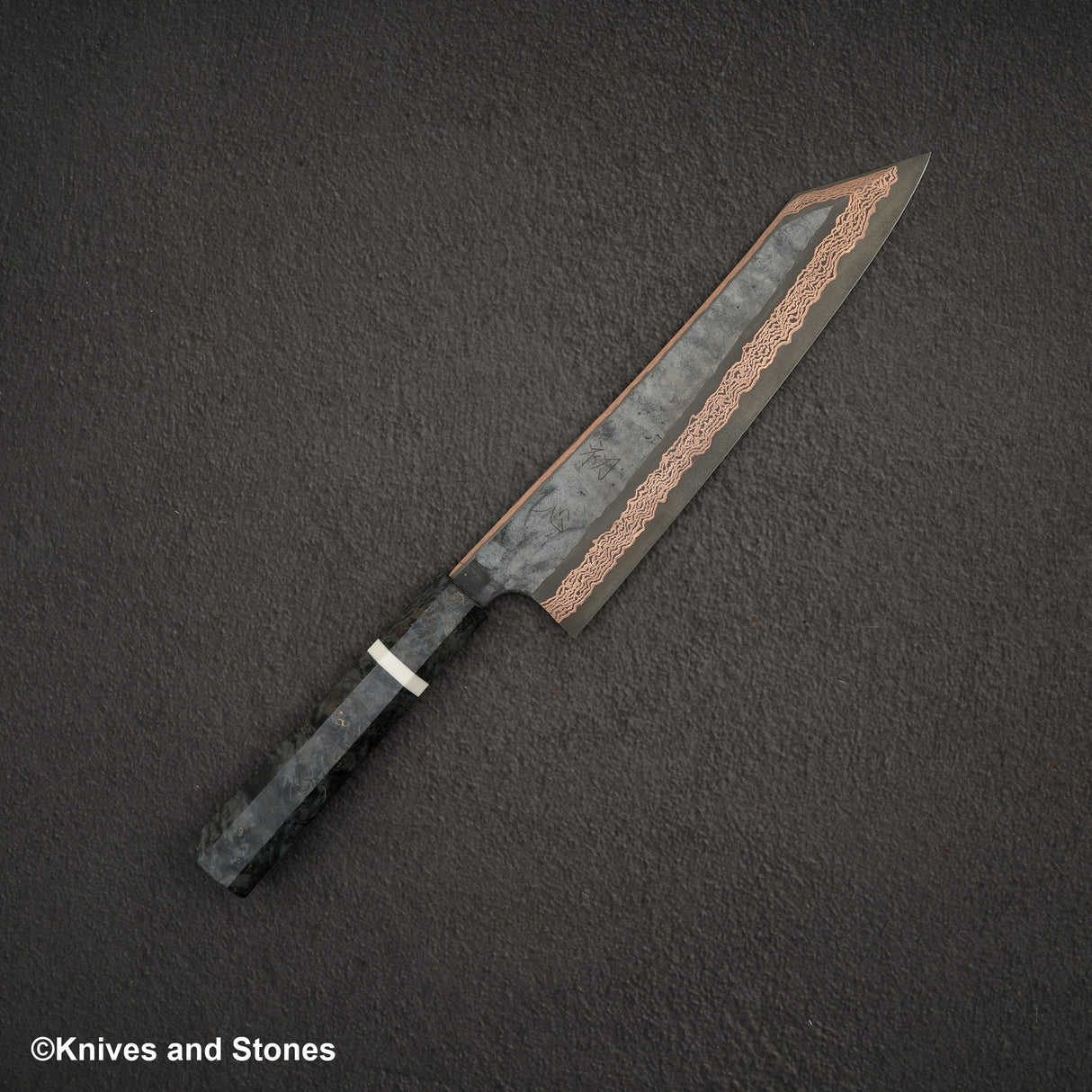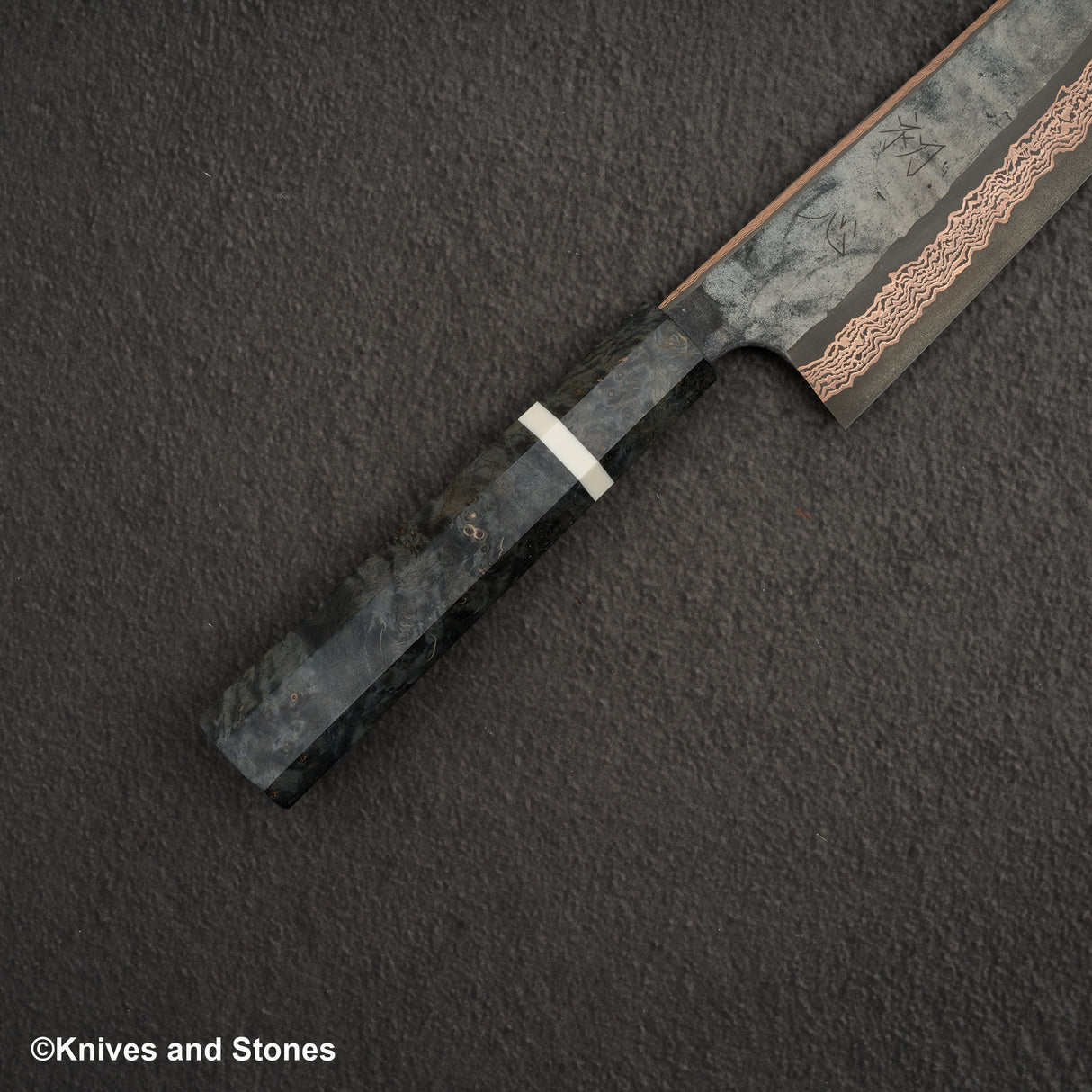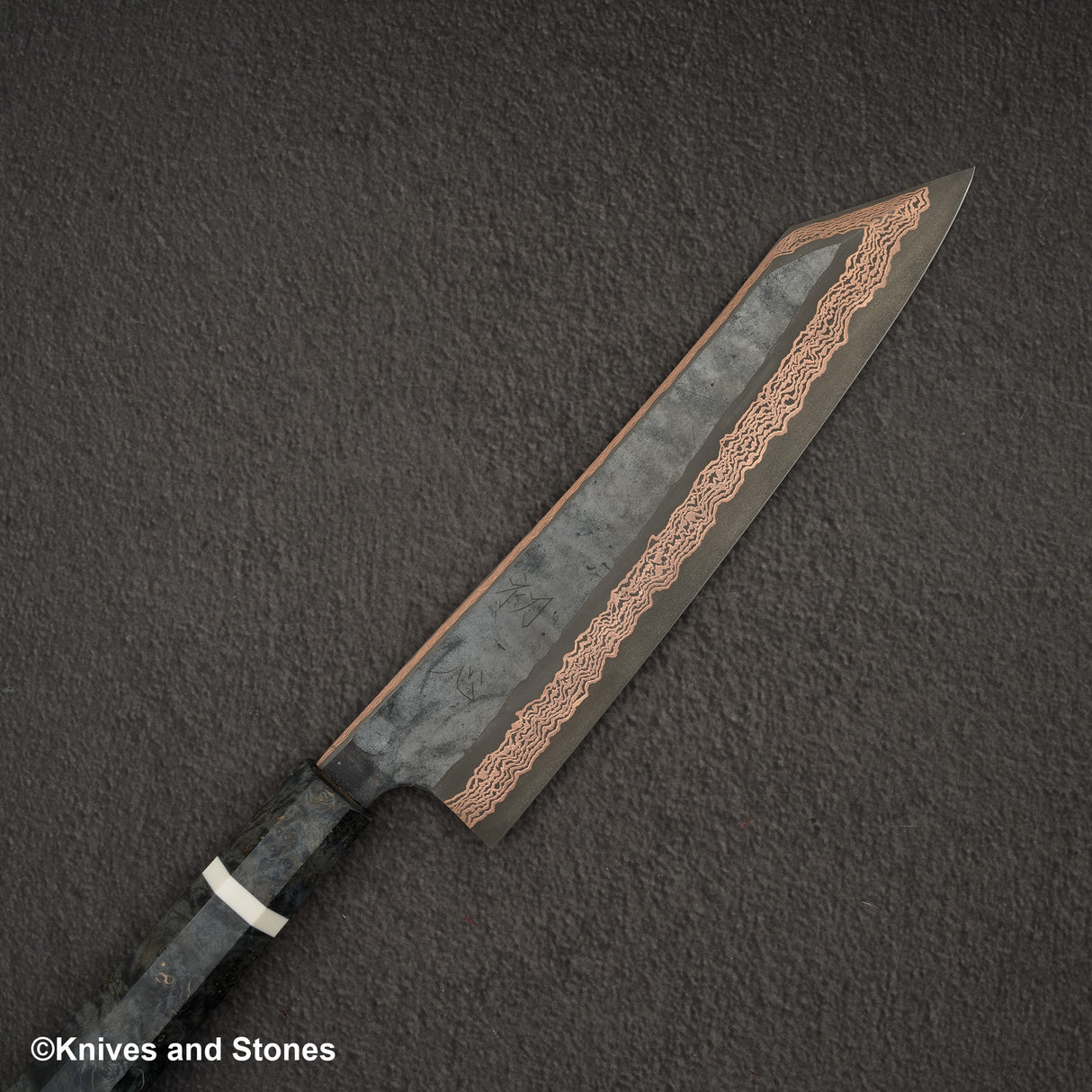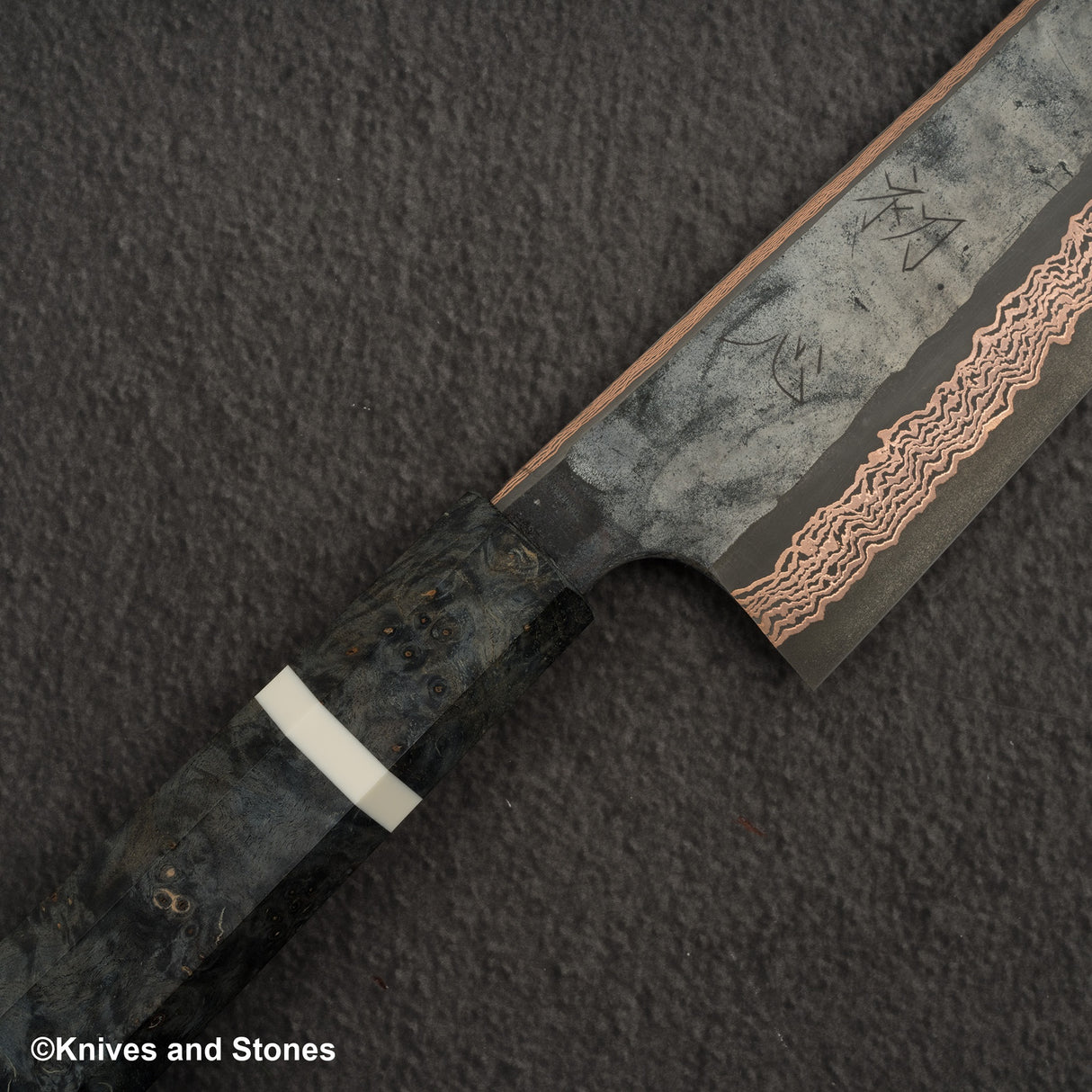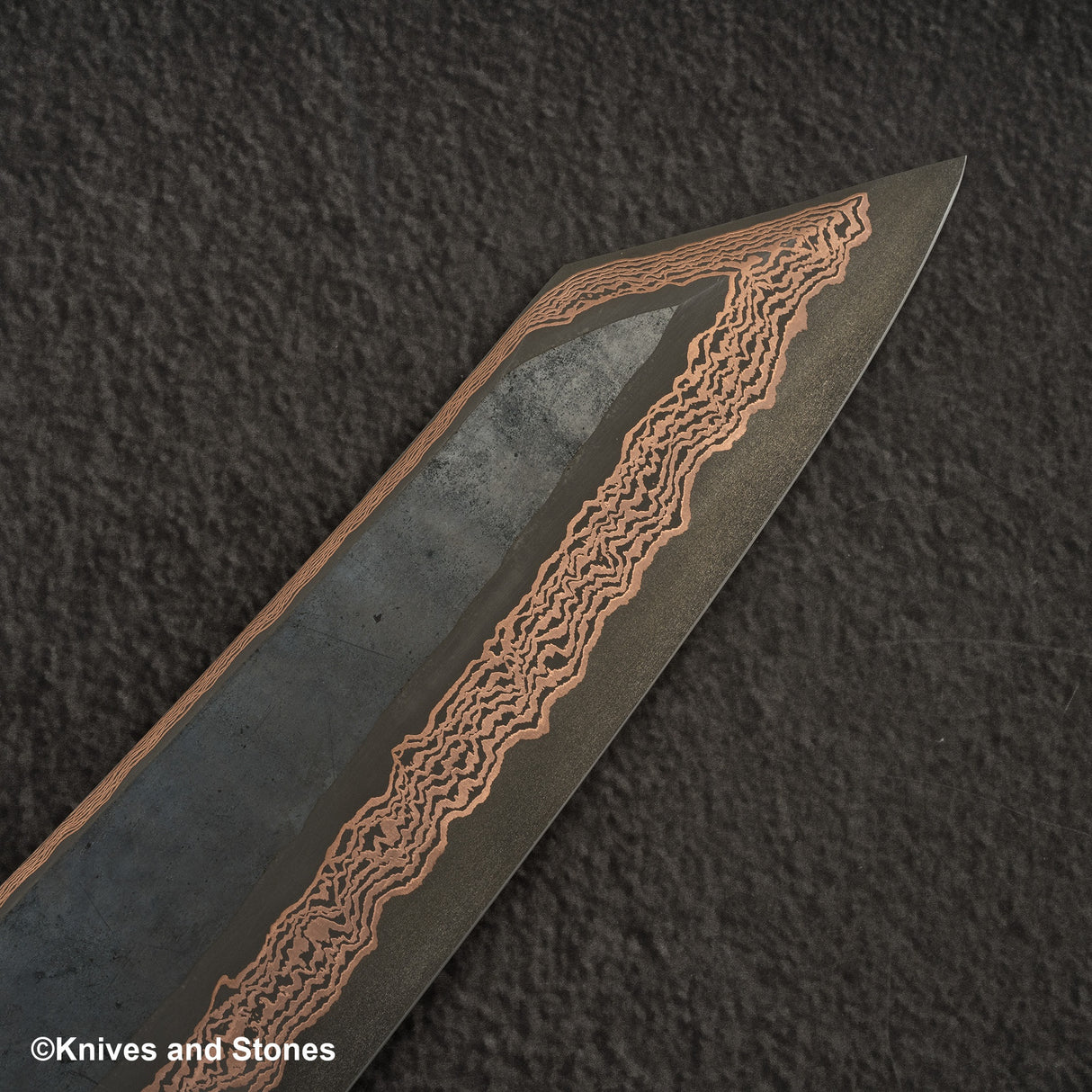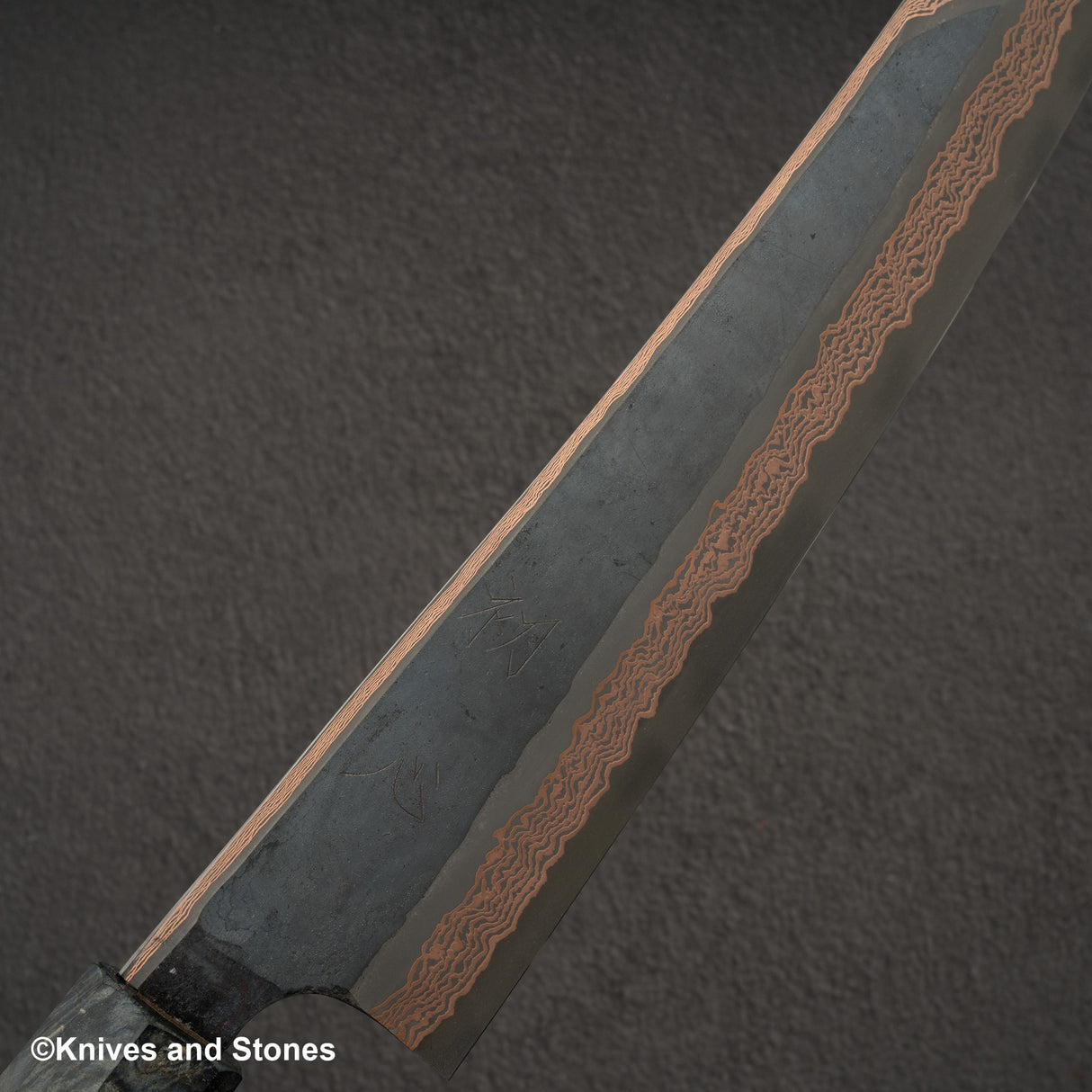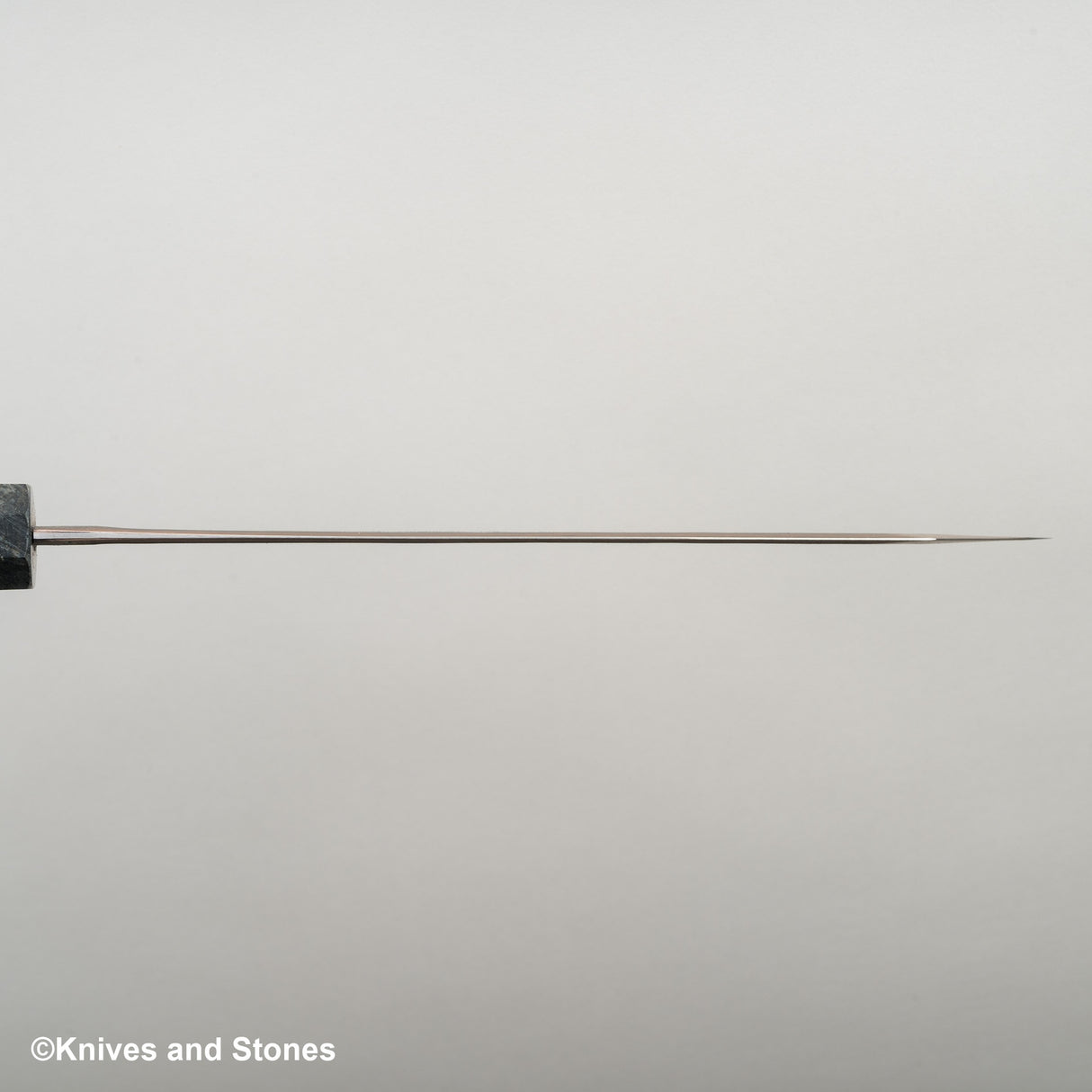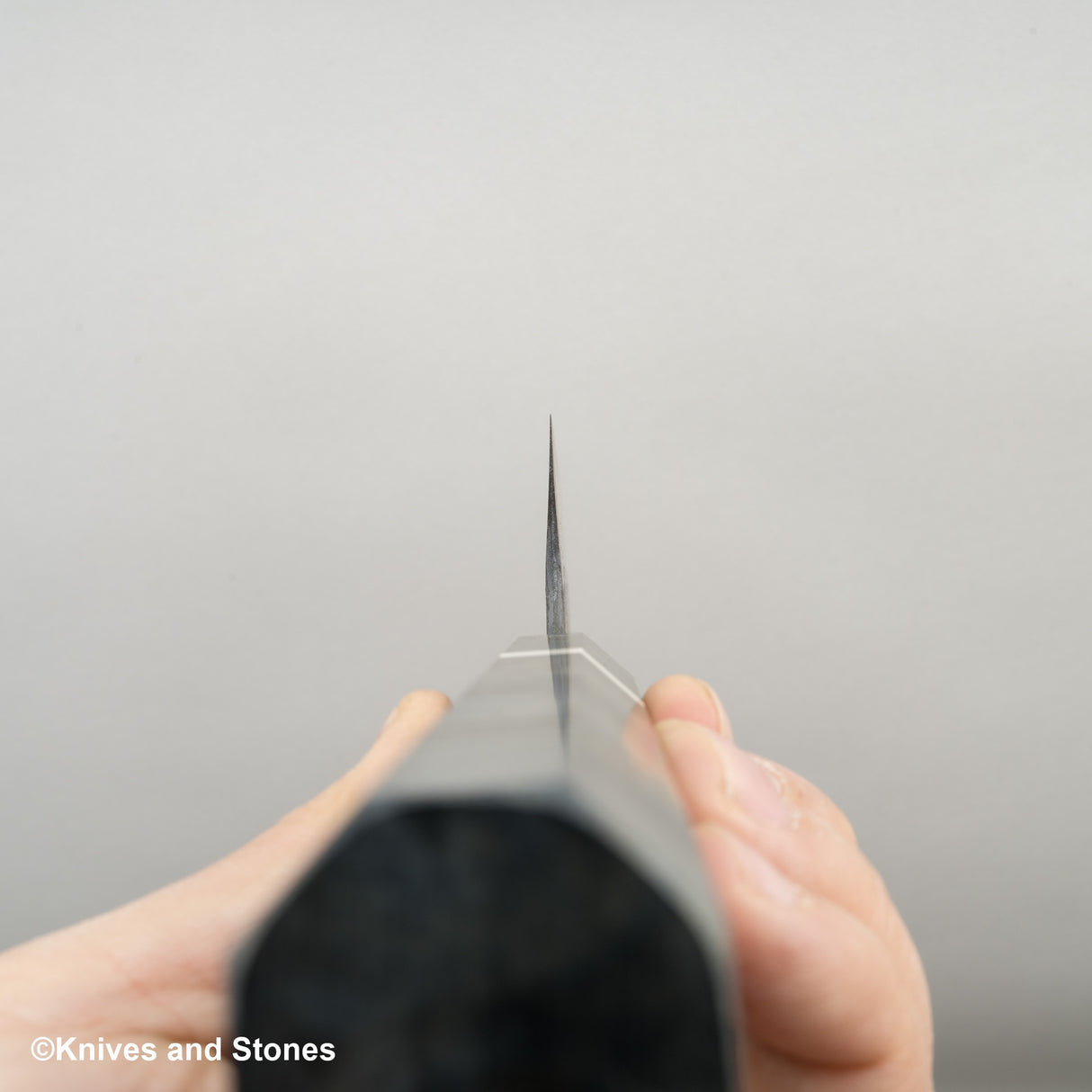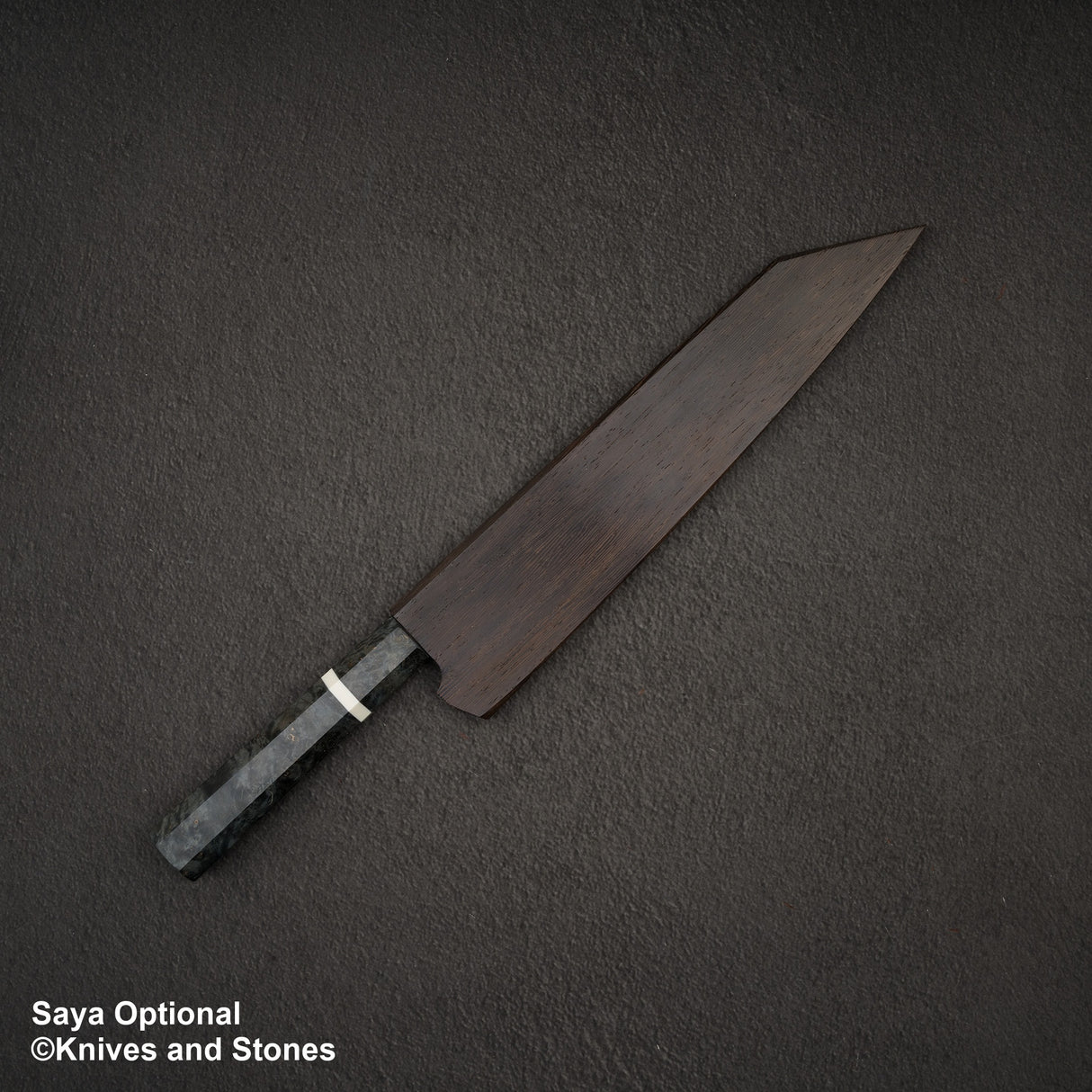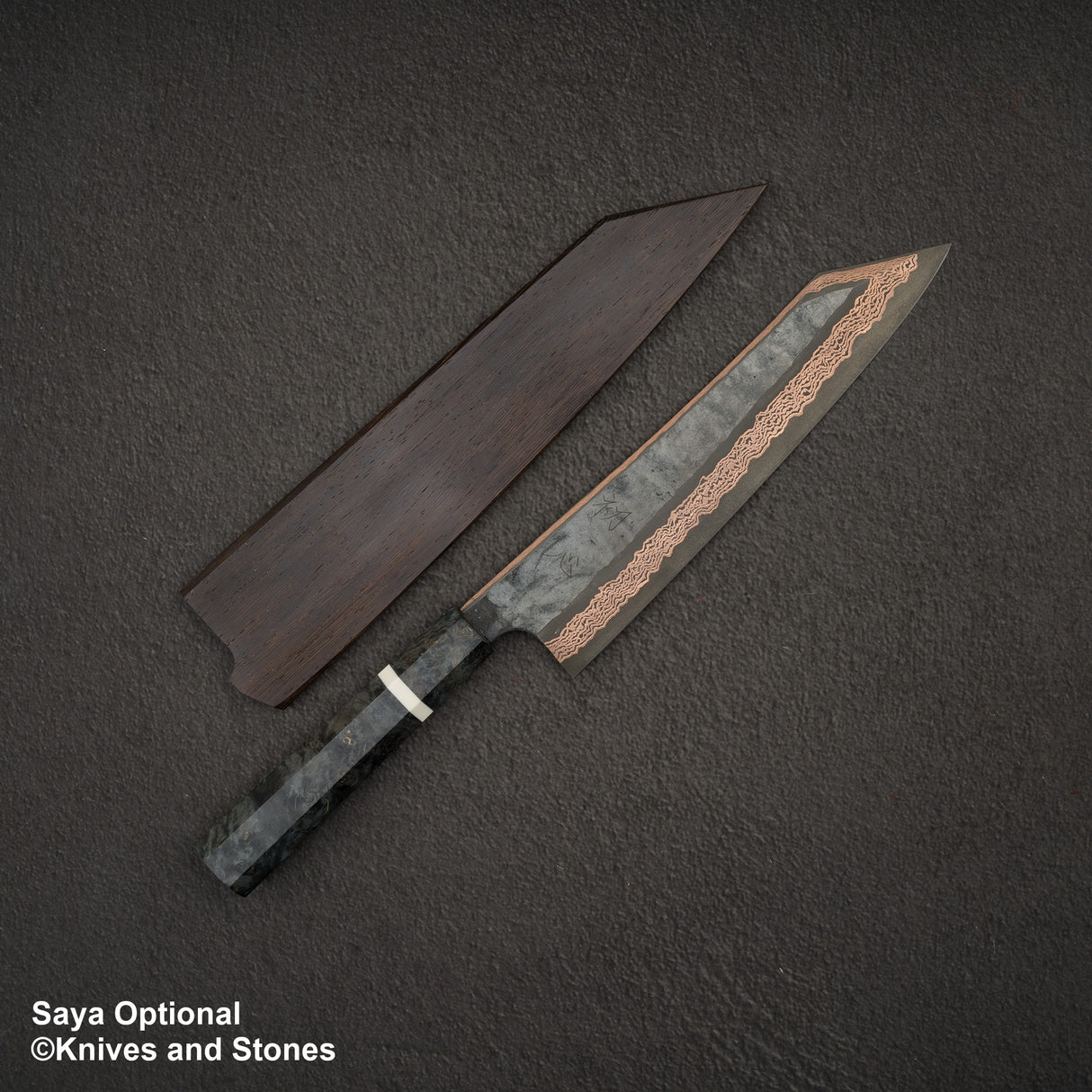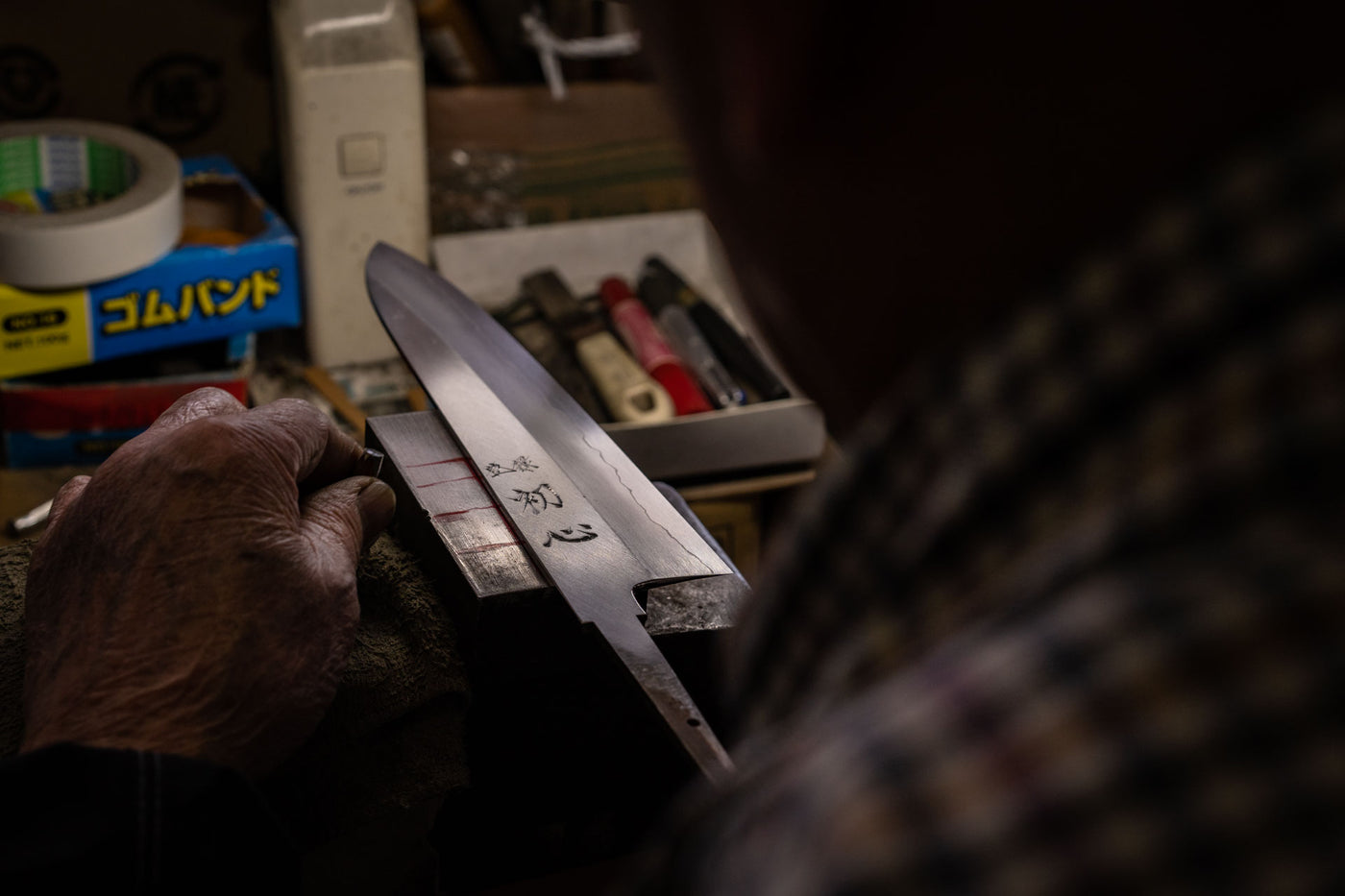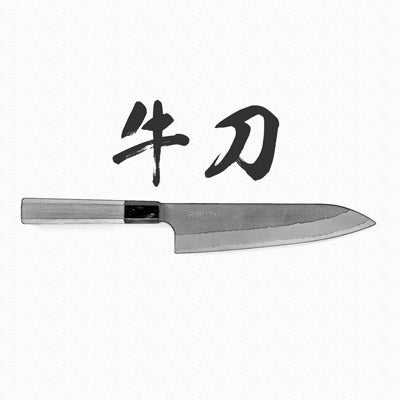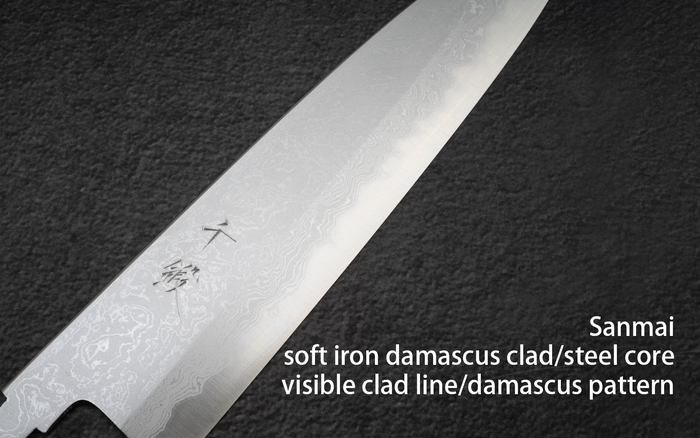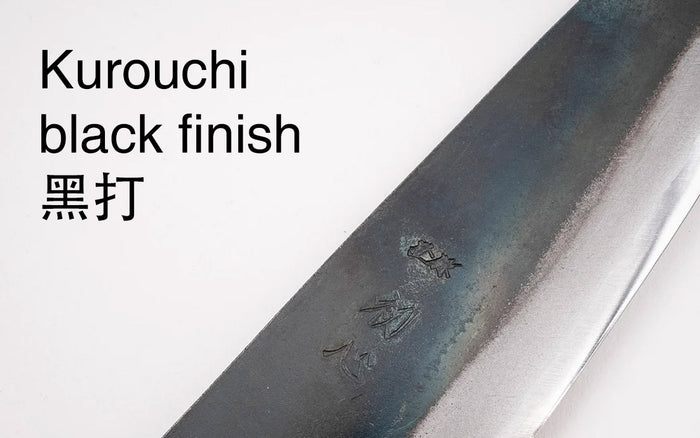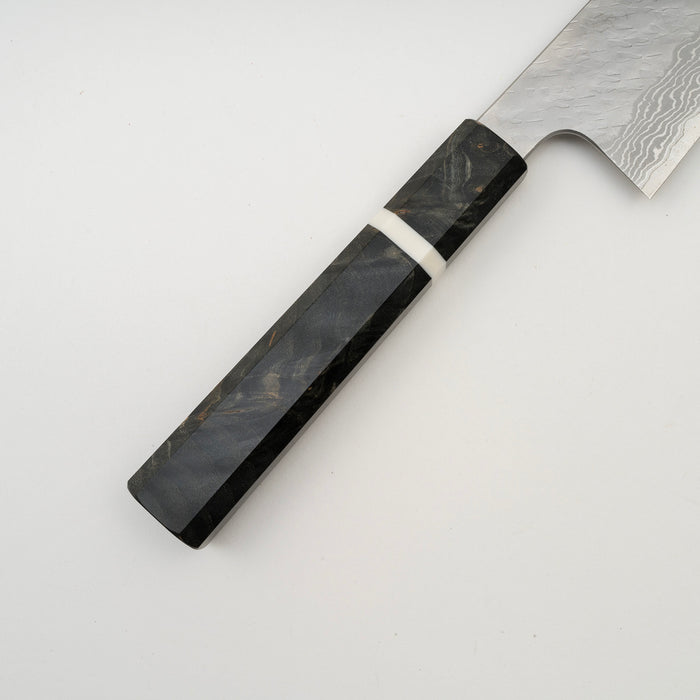Hatsukokoro | SKU:
HT-YROSLDCOPD-KGY240KUBR
Hatsukokoro x Nigara Yorokobi SLD Copper Damascus K-tip Gyuto 240mm Birch Handle
Regular price
$669.95
Unit price
/
Unavailable
Hatsukokoro x Nigara Yorokobi SLD Copper Damascus K-tip Gyuto 240mm Birch Handle is backordered and will ship as soon as it is back in stock.
Couldn't load pickup availability
Set currency to AUD to view correct price matching.
K&S Price: AU $669.95* inc. tax , vs:
K&S Price: AU $669.95* inc. tax , vs:
| Store CE | AU $649.0 | --2.99% |
* For overseas buyers you pay no GST (10%) and low shipping rate.
Last Update: 2026-01-07T17:06:24Z
Detailed Specifications
| Line | Hatsukokoro Yorokobi SLD Copper Damascus Kurouchi |
| Profile | Gyuto / Chefs Knife |
| Bevel Type | Double Bevel |
| Weight | 208 g | 7.3 oz |
| Edge Length | 225 mm | 8 55/64″ |
| Heel Height | 51 mm | 2 1/64″ |
| Width @ Spine | 3.1 mm | 1/8″ |
| Width @ Mid | 2.2 mm | 3/32″ |
| Width @ 1cm from Tip | 0.6 mm | 1/32″ |
| Steel | SLD | Stainless |
| Blade Construction | Sanami - Soft Iron Damascus Clad |
| Hardness (HRC) | 62 - 64 |
| Surface Finish | Kurouchi |
| Handle | Octagonal Birch Burl with Spacer |
| Region | Hyogo |
| Best for |
|

| Pros | Cons |
|
|
|
Care Instruction
- Don't cut hard things! Japanese knives are brittle so bone hacking is a NO NO!
- Wash with neutral detergent after use, and wipe dry;
- Please don't wash knife with dishwasher, it will damage the wood handle;
- Be careful not to leave the knife close to a heat source for a long time;
- It is a lot more dangerous to cut with a blunt knife than a sharp knife!
- It is best to sharpen a Japanese knife regularly on a waterstone.

